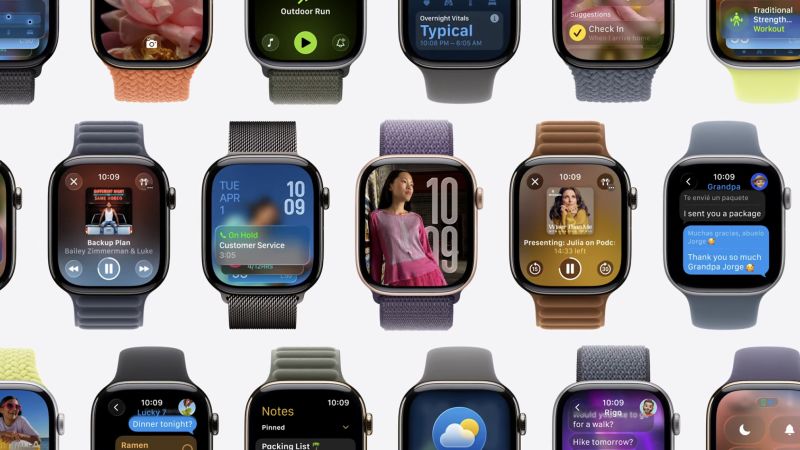
New Apple Watch Feature Detects Silent Health Condition
Opinion | 9/9/2025
A recent development in wearable technology has introduced a new feature on the latest Apple Watch that can detect a health condition often referred to as a “silent killer.” This innovation aims to provide users with early warnings about potentially serious health issues. The new feature utilizes advanced algorithms and sensors to monitor subtle changes in the user’s body that may indicate the presence of this condition.
The health condition in question, which the Apple Watch now detects, is atrial fibrillation (AFib), a common but potentially dangerous irregular heart rhythm that can lead to stroke or other complications if left untreated. By alerting users to irregular heartbeats, the device could prompt them to seek medical attention and potentially prevent more serious health problems.
According to a statement from a medical expert familiar with the matter, “Early detection of AFib is crucial in preventing associated complications, and wearable devices like the Apple Watch play a valuable role in empowering individuals to take charge of their health.” The integration of health-monitoring features in consumer devices reflects a growing trend towards proactive health management through technology.
While the ability of the new Apple Watch to detect AFib represents a significant advancement in consumer health technology, some experts caution that these devices are not a substitute for professional medical advice. It is important for users to consult healthcare providers for accurate diagnosis and appropriate treatment based on any alerts or notifications received from wearable devices.
The introduction of this new health detection capability underscores the increasing convergence of consumer technology and healthcare, as companies like Apple leverage their expertise in innovation to address real-world health concerns. As the use of wearable devices for health monitoring continues to grow, questions around data privacy, accuracy of health information, and regulatory oversight are likely to remain key considerations in the evolving digital health landscape.